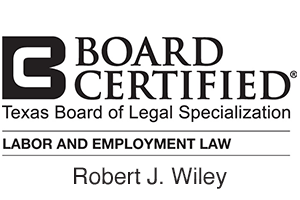in Austin, Texas
Minimum Wage
The Minimum Wage Helps Workers
The Bureau of Labor Statistics estimates that there are over 70 million workers receiving an hourly wage in the United States workforce, representing 55 percent of all American workers. Thankfully, the Fair Labor Standards Act mandates that employers pay their employees a minimum wage under federal law. In the United States, the minimum hourly wage has been $7.25 per hour since July 2009. Additionally, many states and local governments have their own minimum wages which are higher than the federal minimum wage. In Texas the state and federal levels are equal at $7.25 per hour.
Minimum Wage and Tips
Tipped employees and employees who work on commission are often negatively affected by employers who are reluctant to pay a fair wage. The Fair Labor Standards Act establishes a lower minimum wage ($2.13 per hour) for employees (such as waiters) who receive cash tips in the course of their job. The lower wage is allowed because it is assumed that the employee will easily receive enough tips to cover the difference. However, when the tips the employee receives are not enough to cover the shortfall, or when other necessary guidelines are not followed, the employer must pay the worker the regular $7.25 per hour instead of $2.13. Failing to do so would then be a violation of the FLSA. The situation is similar for employees who receive commissions; in that case, as well, the weekly total of pay plus commission received is expected to meet or exceed the minimum wage. If you work in a job where tips or commissions make up part of your income, and you find that you are making less money than you would be if you were paid minimum wage, then your employer may have violated the FLSA.
Common Minimum Wage Violations
Since independent contractors are not covered by minimum wage laws, employers often seek to classify their employees as contractors in order to keep from paying them the required minimum compensation. However, there is a set of requirements necessary to qualify as an independent contractor, and an employer’s unilateral declaration does not meet those requirements. Strong indications that you are an employee include having to work set hours, wearing a uniform, and having your tools provided to you by your employer, as well as receiving benefits reserved for employees such as vacation or sick time. If your employer claims that you are an independent contractor, but you feel that you are an employee, it is possible that they have misclassified you in order to pay you less. If so, you should consult with an Austin employment lawyer like those at Austin Employment Lawyers, P.C.
Employers also cannot avoid paying you minimum wage simply by declaring that they will pay you on a salaried, non-hourly basis. Only certain positions and professions, such as executives who oversee two or more employees, may be paid a salary and exempted from requirements such as minimum wage or overtime pay.
When and How to Take Action
The Fair Labor Standards Act allows employees to seek compensation for the past two years’ worth of lost income if their employer has failed to pay them minimum wage. If the employer’s violation of the FLSA is willful, then the employee can seek lost wages for the past three years. In either case, the damages will be calculated by multiplying the difference between the minimum wage and actual hourly rate paid by the number of hours worked. It is rare for one employee to be the only one at a company who does not receive the minimum wage, and it is more common for there to be multiple potential plaintiffs when an employer has been violating the FLSA. For that reason, FLSA minimum wage cases often take the form of collective action lawsuits. Austin Employment Lawyers, P.C.’s Austin employment lawyers are experienced in this area, and can help you organize a collective legal action or make a strong case on your own. If you or your coworkers are not receiving the pay you should be receiving, or if you think you have a claim, you can get in touch with us by filling out our intake form or calling our office at (512) 271-5527.







